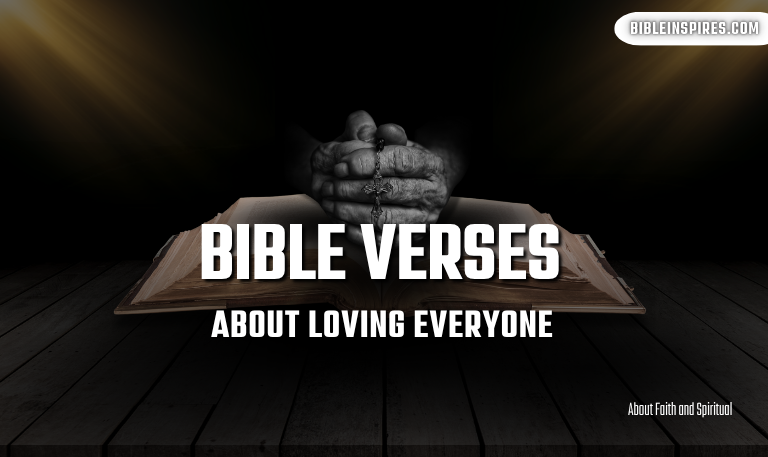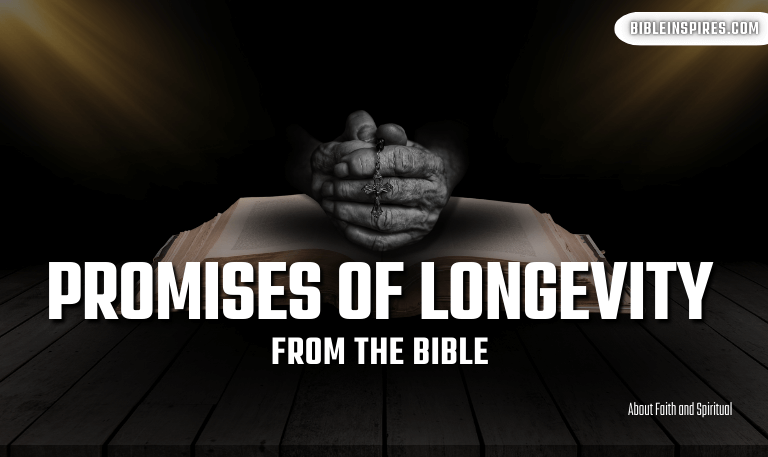Loving everyone is one of the most profound teachings in the Bible. Yet, it’s often misunderstood, overlooked, or seen as a lofty ideal. This comprehensive guide explores the heart of biblical love — Bible verses about loving everyone — unpacking scripture, practical applications, and spiritual insights that inspire and equip believers to embody God’s love daily. Whether you’re seeking inspiration, biblical wisdom, or practical guidance on how to love others unconditionally, this article will serve as your trusted resource.
Understanding Love in the Bible: The Foundation of Loving Everyone
Love in the Bible is multi-dimensional, going beyond mere feelings to include actions, intentions, and spiritual commitment. The Greek language of the New Testament uses different words for love, including:
Agape (ἀγάπη): Unconditional, selfless love — God’s perfect love.
Phileo (φιλία): Brotherly or friendship love.
Storge (στοργή): Familial love.
Eros (ἔρως): Romantic or passionate love (rarely in the Bible).
Agape love is the highest and most relevant for the command to love everyone. It is a love that expects nothing in return, extends to enemies, and reflects God’s own nature.
“God is love.” — 1 John 4:8
This divine love compels believers to mirror God’s heart by loving everyone — neighbors, strangers, and even adversaries.
Read Also: Bible Verses About Promises
Primary Bible Verses About Loving Everyone
These scriptures form the cornerstone for understanding the biblical mandate to love universally:
John 13:34-35 (NIV)
“A new command I give you: Love one another. As I have loved you, so you must love one another. By this everyone will know that you are my disciples, if you love one another.”
Jesus places love as the defining mark of His followers — a love that includes everyone.
1 John 4:7-8 (NIV)
“Dear friends, let us love one another, for love comes from God. Everyone who loves has been born of God and knows God. Whoever does not love does not know God, because God is love.”
Love is not optional but essential — a reflection of knowing God.
Matthew 22:37-40 (NIV)
“‘Love the Lord your God with all your heart and with all your soul and with all your mind.’ This is the first and greatest commandment. And the second is like it: ‘Love your neighbor as yourself.’ All the Law and the Prophets hang on these two commandments.”
Loving others is inseparable from loving God.
Romans 13:8-10 (NIV)
“Let no debt remain outstanding, except the continuing debt to love one another, for whoever loves others has fulfilled the law.”
Love fulfills all commandments.
Loving Neighbors and Enemies: Radical Commands from Scripture
The Bible commands a love that defies human instincts — love for enemies and the marginalized:
Luke 6:27-36 (NIV)
“But to you who are listening I say: Love your enemies, do good to those who hate you… Be merciful, just as your Father is merciful.”
Matthew 5:43-48 (NIV)
“Love your enemies and pray for those who persecute you… Be perfect, therefore, as your heavenly Father is perfect.”
Romans 12:9-21 (NIV)
“Do not repay anyone evil for evil… Bless those who persecute you; bless and do not curse.”
Biblical Examples of Loving Everyone
The Bible doesn’t just teach love; it shows love in action:
The Good Samaritan (Luke 10:25-37): A story illustrating love beyond ethnic and social boundaries.
Jesus and Outcasts: Jesus healed and spent time with sinners, tax collectors, and societal outcasts — demonstrating love for all.
Paul’s Letters: Teach love as central to Christian living, urging unity and compassion in diverse communities.
Love as a Fruit of the Spirit
Love isn’t just a command; it’s a spiritual fruit cultivated by the Holy Spirit:
Galatians 5:22-23 (NIV)
“But the fruit of the Spirit is love, joy, peace, forbearance, kindness, goodness, faithfulness…”
This indicates that loving everyone is evidence of spiritual maturity.
Love in the Old Testament vs. New Testament
Old Testament Highlights:
Leviticus 19:18: “Love your neighbor as yourself.”
Proverbs 10:12: “Hatred stirs up conflict, but love covers over all wrongs.”
Psalm 133:1: “How good and pleasant it is when God’s people live together in unity!”
New Testament Highlights:
1 Corinthians 13: The quintessential “love chapter” — defining love’s qualities.
Ephesians 4:2-3: “Be completely humble and gentle; be patient, bearing with one another in love.”
Colossians 3:14: “And over all these virtues put on love, which binds them all together in perfect unity.”
How Loving Everyone Transforms Communities
When biblical love permeates communities:
Divisions dissolve and unity strengthens.
Compassion replaces judgment and exclusion.
Forgiveness heals relational wounds.
A culture of generosity and service flourishes.
These principles fueled the rapid growth of the early Church and continue to inspire modern Christian community-building efforts.
The Relationship Between Love and Forgiveness
Love and forgiveness are inseparable in Scripture:
Forgiveness enables love to heal and restore broken relationships.
Without forgiveness, love cannot flourish fully.
Key Verses:
Ephesians 4:32: “Be kind and compassionate to one another, forgiving each other, just as in Christ God forgave you.”
Matthew 18:21-22: “I tell you, not seven times, but seventy-seven times.”
Practical Steps to Loving Everyone Every Day
See Others Through God’s Eyes: Recognize everyone’s inherent worth.
Practice Empathy: Seek to understand before judging.
Forgive Freely: Release grudges to make room for love.
Serve Without Expectation: Acts of kindness build love.
Speak Words of Affirmation: Encourage and uplift others.
Pray for Those Difficult to Love: Spiritual strength nurtures love.
Set Healthy Boundaries: Loving doesn’t mean enabling harmful behavior.
Role of Prayer in Cultivating Love for All
Prayer invites God’s power to transform hearts:
Intercessory prayer for others (including enemies) softens attitudes.
Prayer aligns our will with God’s love and grace.
Addressing Common Misconceptions About Loving Everyone
Loving doesn’t mean approving bad behavior. It means seeking the best for others, sometimes with tough love.
Loving everyone doesn’t mean neglecting self-care. You can love others while maintaining healthy boundaries.
Love is an action, not just an emotion. It requires commitment and effort.
Bible Verses About Loving Everyone FAQs
What Are Some Bible Verses That Teach Loving Everyone?
Key verses include John 13:34-35, 1 John 4:7-8, Matthew 22:37-40, Luke 6:27-36, and Romans 13:8-10.
How Can I Love Someone Who Hurts Me According to the Bible?
Scripture calls us to love even enemies and forgive continually (Matthew 5:44, Luke 6:27-28, Matthew 18:21-22).
Does the Bible Say We Must Love Everyone Even Our Enemies?
Yes, Jesus explicitly commands love for enemies and those who persecute you (Matthew 5:43-48).
How Does Loving Everyone Reflect in Christian Life?
It shows as compassion, forgiveness, service, and unity within communities (Galatians 5:22-23, Ephesians 4:2-3).
Can Loving Everyone Improve Mental and Emotional Health?
Yes, studies suggest practicing compassion reduces stress and promotes emotional well-being, aligning with biblical wisdom.
What Is the Difference Between Loving Everyone and Loving Only Neighbors?
“Neighbor” in biblical terms is broad and inclusive (e.g., Good Samaritan parable), essentially meaning everyone, including strangers and enemies.
How Can I Show God’s Love to People Around Me?
Through acts of kindness, forgiveness, listening, prayer, and standing for justice (1 John 3:18).
Conclusion
Loving everyone, as taught in the Bible, is a transformative command that challenges natural inclinations but promises profound spiritual and social rewards. It reflects God’s character and serves as the hallmark of Christian discipleship. By immersing ourselves in these Bible verses about loving everyone, cultivating the fruit of the Spirit, and practicing love daily, we mirror God’s unconditional love and help build a more compassionate world.

![Top 10 Bible Verses About Brotherhood and Love [Explained] 3 Top-10-Bible-Verses-About-Brotherhood-and-Love-[Explained]](https://bibleinspires.com/wp-content/uploads/2025/04/Top-10-Bible-Verses-About-Brotherhood-and-Love-Explained.png)
![11+ Bible Verses About God and Nature [2025] 4 11+-Bible-Verses-About-God-and-Nature-[2025]](https://bibleinspires.com/wp-content/uploads/2025/04/11-Bible-Verses-About-God-and-Nature-2025.png)
